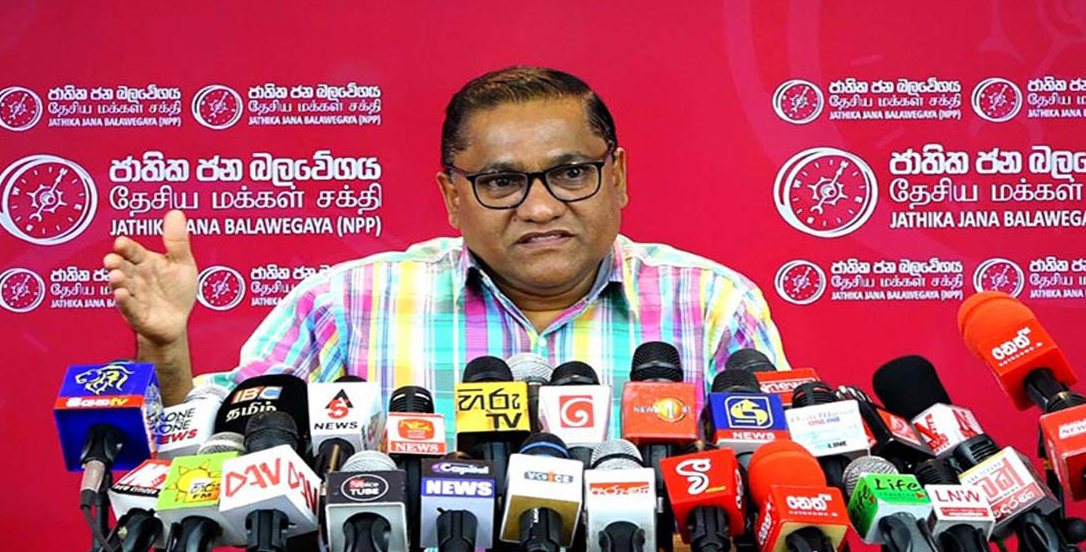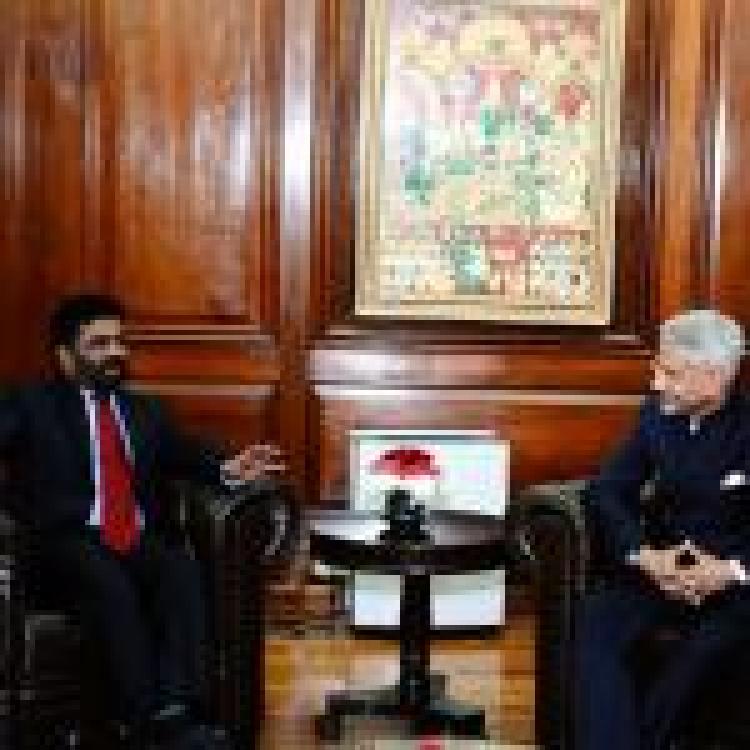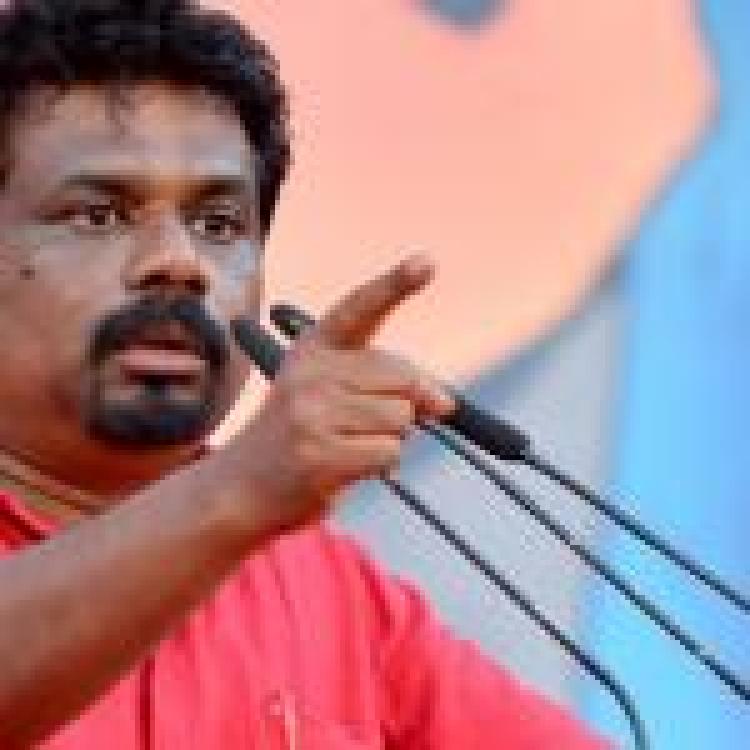
“As a political party we strongly opposed the Indo-Lanka Accord decades ago, and dedicated our initiatives to safeguarding Sri Lanka’s sovereignty, at the cost of many lives," said Vijitha Herath of the Janatha Vimukthi Peramuna (JVP) led National People’s Power (NPP). "This stance has not changed and will not change,” he told reporters in Colombo.
Herath, who recently accompanied party leader Anura Kumara Dissanayake as he toured India last week, said that the party prioritises the national security and territorial integrity of the country at all costs.
“The political situation today is different, the world has changed, and so has global politics,” he said at a media briefing. “Even though we have changed as well, we will not allow ourselves as a nation to be pigeonholed to fit the needs or appease power struggles among other nations.”
He said that his party will engage in politics while ensuring the country’s sovereignty and territorial integrity remain intact. “Although we will not hesitate in engaging with other nations on economic pursuits, we will not fall victim to global power dynamics and stay on course to develop and advance our nation,” Herath continued.
The MP emphasised that under NPP governance, his party will deal transparently with other governments and ensure that the nation’s advancements particularly in terms of economic development are priotised. “Throughout the country’s history, we have consistently made decisions to safeguard our territorial integrity, and we stand by that commitment today and in the future. We give our assurance to the people of this country that these principles will not waver.”
The Indo-Lanka Accord was signed in 1987, without any input from Tamil parties, and established the 13th Amendment to Sri Lanka’s constitution which created the system of Provincial Councils, promising greater devolution of land and police powers to a merged North-East. The JVP staged two insurrections against the state in the early 1970s and the late 1980s. The latter of these was chiefly in response to the Indo-Lanka accord and the 13th Amendment which sought to devolve powers to Tamils in the North-East. Tens of thousands were killed. Then leader Rohana Wijeweera framed Tamil demands for self-determination as in-hoc with US imperialist interests in his 1986 book “Solutions for Tamil Eelam Struggle”.
Referring to the discussions over the visit by the leader of the NPP Anura Kumara Dissanayake to India, Herath remarked that this visit was not undertaken hurriedly as cited by other political commentators, stating “this meeting was organized well in advance and we were in India on an invitation by the Indian government over a month ago".
He further said "India is our closest neighbour". "Sri Lanka and India have longstanding bilateral and diplomatic relations. It was our intention to strengthen those ties formally through this visit."
The JVP, which has historically held a frosty view of relregardations with its northern neighbour, has yet to clarify on any policy decisions with regards to Delhi.
In 2015, then-JVP Propaganda Secretary Herath told The Island, "the JVP is against federalism”. Whilst accepting that “the grievances of the Tamil people should be redressed,” Herath reiterated that “federalism is not that solution”. He also spoke out against the merging of the Northern and Eastern provinces, as outlined by the Indo-Lanka accord. “It is the JVP that went before the courts and got an order to demerge the two provinces that had been arbitrarily merged after the Indo-Lanka Accord,” he added, referring to when the JVP filed three separate petitions with the Supreme Court of Sri Lanka calling for the North Eastern Province to be demerged. The Province was formally demerged into the Northern and Eastern provinces on 1 January 2007.
Throughout the armed conflict, the JVP would weaponize the pretence of Marxism to justify their hardline opposition to Tamil demands. In the 2004 parliamentary elections, the JVP became a coalition partner of the United Peoples Freedom Alliance (UPFA) and stood opposed to continued peace negotiations with the LTTE; they further rejected the possibility of joint post-tsunami aid distribution, and in 2005 endorsed Mahinda Rajapaksa on a platform specifically opposed to the peace process. In early 2006 the JVP openly promoted a military solution that would culminate in the Mullivaikkal genocide.
During peace talks between the LTTE and the Sri Lankan government, the JVP would consistently protest against the ceasefire – slamming international mediation and the concept of granting devolution or autonomy to the Tamil homeland.


